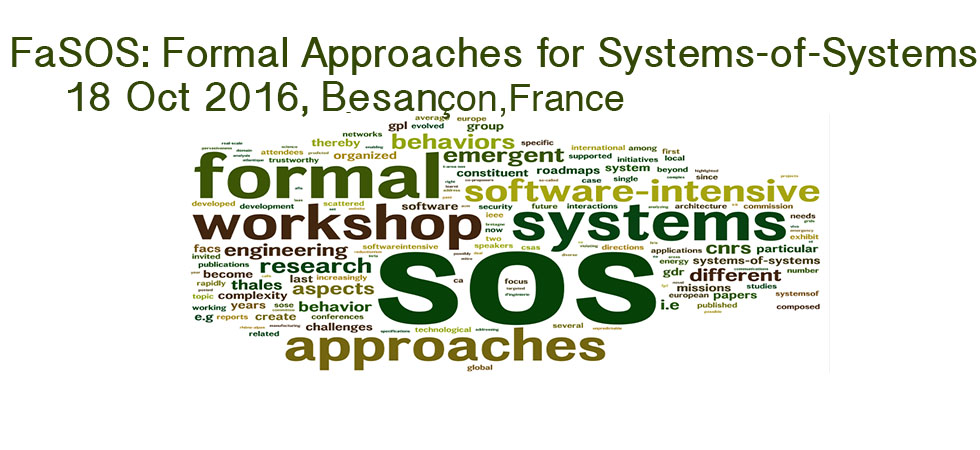
|
|
|
Presentation
The complexity of software and the complexity of systems reliant on software have grown at a staggering rate. In particular, software-intensive systems have been rapidly evolved from being stand-alone systems in the past, to be part of networked systems in the present, to increasingly become software-intensive systems of systems in the coming future. Actually, the pervasiveness of the communication networks increasingly has made possible to interconnect systems that were independently developed, operated, managed, and evolved, yielding a new kind of complex system, i.e. a system that is itself composed of systems, the so-called System-of-Systems (SoS). Software-intensive SoS has become a hotspot in the last 5 years, from both research and industry viewpoints. Indeed, various aspects of our lives and livelihoods have progressively become overly dependent on some sort of Software-intensive SoS. This is the case of SoSs found in different areas as diverse as energy, healthcare, manufacturing, and transportation; and applications that address societal needs, e.g. environmental monitoring, distributed energy grids, emergency coordination, global traffic control, and smart cities. Oppositely to single systems, SoSs exhibit emergent behavior, i.e. global behaviors that stem from the local interactions among constituent systems, but cannot be deduced solely from the behaviors of the constituent systems themselves. Hence, whether the behavior of a single system can be understood as the sum of the behaviors of its components, in SoSs, this reductionism fails: an SoS behaves in ways that cannot feasibly be predicted from analyzing exclusively its individual constituents.
Complexity is thereby innate to SoSs as they inherently exhibit emergent behavior: in SoSs, missions are achieved through emergent behavior drawn from the local interactions among constituent systems. In fact, an SoS is conceived to create desired emergent behaviors for fulfilling specific missions and may, by side effect, create undesirable behaviors possibly violating safety or security, which needs to be avoided. Additionally, the environment in which an SoS operates is generally known only partially at design-time, i.e. it is too unpredictable to be summarized within a fixed set of specifications, and thereby there will inevitably be novel situations to deal with at run-time.
These SoS characteristics have raised substantial challenges to researchers and practitioners in formal aspects of Softwareintensive SoSs. The scientific and technological challenge is thereby to support the formal evolutionary development of trustworthy Software-intensive SoSs, harnessing emergent behaviors for achieving specified missions.
This workshop will focus on formal aspects of Softwareintensive SoSs: from the theoretical foundations for enabling trustworthy SoS, applied research including lessons learnt from controlled experiments related to formal aspects, and experience reports from in vivo case studies or real-scale projects applying formal approaches. In this framework, the workshop will focus on the following topics (but are not limited to):
• Formal approaches for SoS requirements;
• Formal approaches for SoS mission;
• Formal approaches for SoS specification;
• Formal approaches for SoS architecture;
• Formal approaches for SoS verification and validation;
• Formal approaches for SoS construction and evolution;
• Formal approaches for SoS security and privacy;
• Experiences reports on formal approaches for SoS;
• Application of formal approaches to SoS applications;
• Future perspective, challenges, and directions on formal approaches for SoS.

